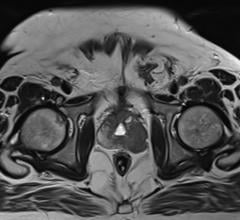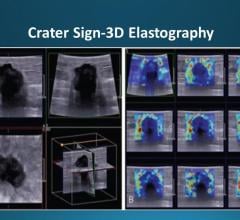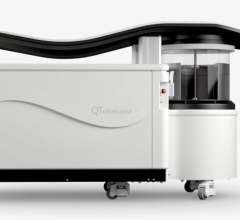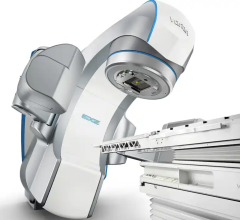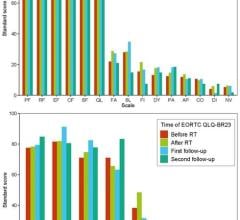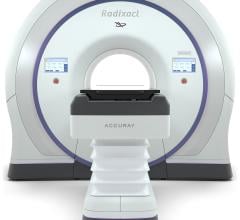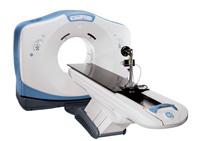
August 2, 2011 – As the 2011 American Association of Physicists in Medicine (AAPM) and Canadian Organization of Medical Physicists (COMP) meet in Vancouver, Canada, GE Healthcare announced the recent U.S. Food and Drug Administration (FDA) clearance and increasing global utilization of its new platform of radiotherapy (RT) planning computed tomography (CT) systems. Highlighted by the Discovery CT590 RT, these CT systems are designed specifically with treatment planning in mind and help physicians address the increasingly specialized imaging needs of patients.
GE’s new wide-bore RT portfolio – including the Discovery CT590 RT and Optima CT580 RT – is dedicated to meeting both current and future clinical oncology demands for diagnostic accuracy, enhanced visualization, complex patient positioning and monitoring, and productive workflow.
Built from the ground up and flexible in a variety of radiation oncology settings, the new RT systems are powered by the latest in GE CT technology. For example, the Discovery CT590 RT offers an automated 4-D video organ motion-recording feature, which captures organ movement to better adapt future radiation therapy treatments.
“As new treatment technologies emerge in radiotherapy, there is an increasing need for intuitive imaging systems supported by robust clinical applications and reliable service,” said Randy Hemingway, administrative director of radiation oncology at Washington Hospital Center in Washington, D.C. “Our new Discovery CT590 RT with Advantage 4-D and Advantage SimMD offer just such benefits – helping us improve workflow with accuracy as we seek optimal clinical outcomes that best meet our patients’ needs.”
In addition to imaging for oncology, this new family of RT products will also be available for interventional and bariatric CT. In fact, the Discovery CT590 RT can leverage GE’s leading dose reduction technology called ASiR (adaptive statistical iterative reconstruction). This reconstruction technology may enable reduction in pixel noise standard deviation and improvement in low contrast detectability, and may allow for reduced mA in the acquisition of diagnostic images, thereby reducing the dose required. +
+ In clinical practice, the use of ASiR may reduce CT patient dose depending on the clinical task, patient size, anatomical location and clinical practice. A consultation with a radiologist and a physicist should be made to determine the appropriate dose to obtain diagnostic image quality for the particular clinical task.
For more information: www.gehealthcare.com


 April 18, 2024
April 18, 2024 

